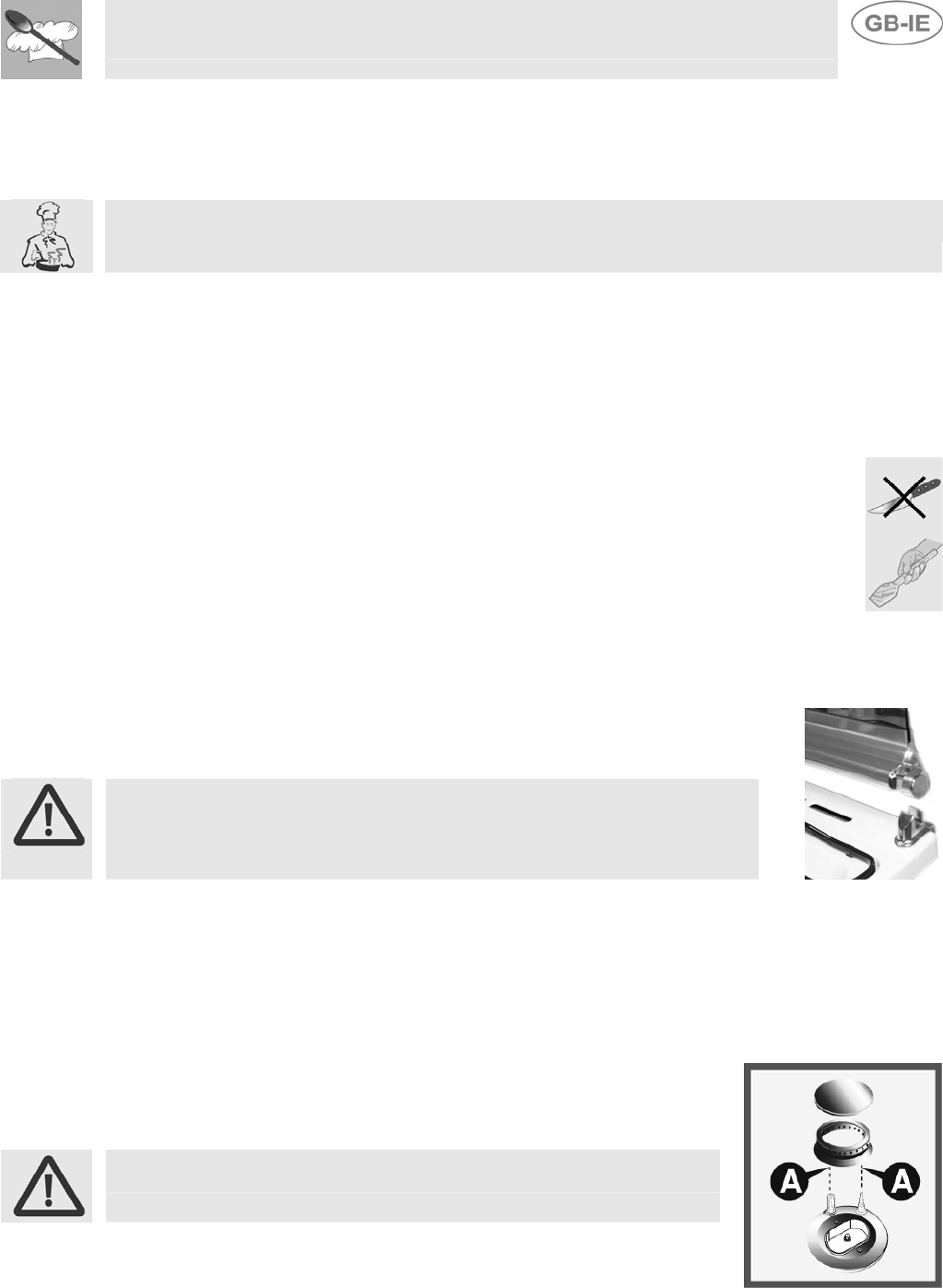
Instruction for the user
23
11 CLEANING AND MAINTENANCE
11.1 Cleaning stainless steel and enamelled versions
To maintain stainless steel in good condition it must be cleaned regularly after each use, once it ha
s
cooled down.
11.1.1 Ordinary Daily Cleaning
To clean and preserve the stainless steel surfaces, always use only specific products that do not
contain abrasives or chlorine-based acids.
How to use: pour the product on a damp cloth and wipe the surface, rinse thoroughly and dry with a
soft cloth or deerskin.
11.1.2 Food stains or residues
Do not use metallic sponges or sharp scrapers: they will damage the surface.
Use normal non-abrasive products for steel, and a wooden or plastic tool if necessary.
Rinse thoroughly and dry with a soft cloth or deerskin.
Do not allow residues of sugary foods (such as jam) to set inside the oven. If left to set
for too long, they might damage the enamel lining of the oven.
11.2 Cleaning of cooking hob components
11.2.1 The glass cover
The cover can be removed from the hinges by lifting it upwards when it is open.
This makes cleaning easier.
If liquids are spilt on the closed lid, remove them thoroughly with a rag befor
e
opening it.
11.2.2 Grids
Remove the grids and clean them in warm water with a non-abrasive detergent, taking care to remove
any incrustations. Replace them on the cooking hob.
Continuous contact of the grids with the flame can cause the paint near the hot areas to be altered.
This is completely natural and does not compromise the functionality of the component.
11.2.3 Burner caps and flame cap crowns
The caps and flame-spreader crowns are extractable to facilitate cleaning.
Wash them in hot water with non-abrasive detergent, taking care to
remove any incrustations, and wait until they are perfectly dry.
CAUTION: do not wash these components in a dishwasher.
The burners can be left to soak in hot water and detergent.
Replace the flame-spreader crowns, checking that they are positioned in
their housing with their respective caps, taking care that flame-spreader
holes A correspond to the spark plugs and the thermocouples.


















